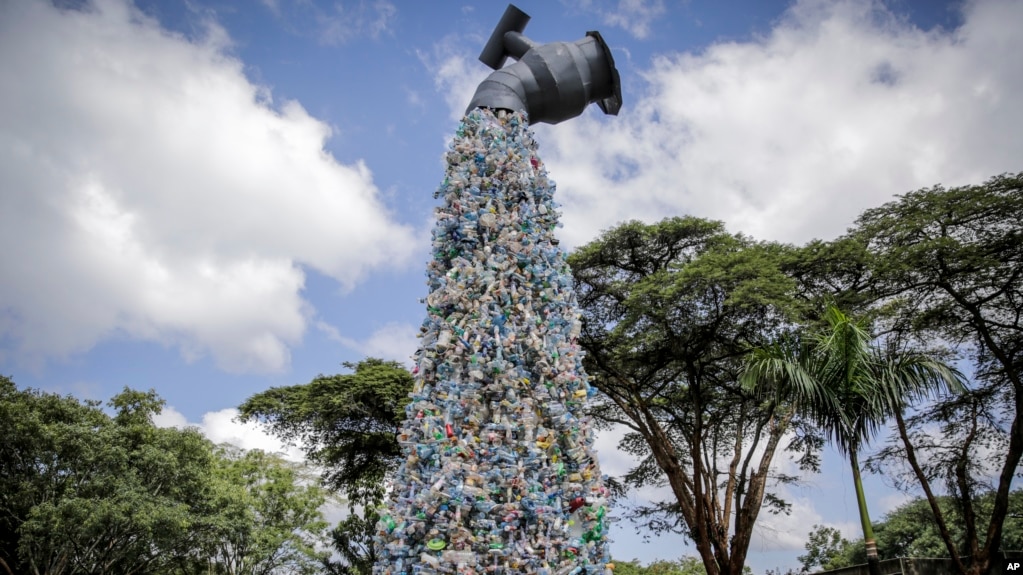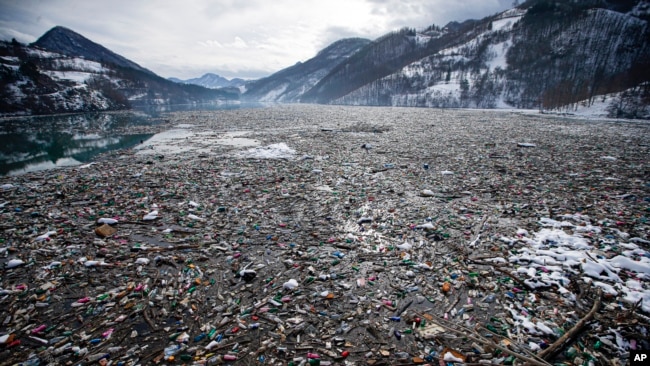
A giant art sculpture showing a tap outpouring plastic bottles, each of which was picked up in the neighborhood of Kibera, during the U.N. Environment Assembly (UNEA) held at the U.N. Environment Programme (UNEP) headquarters in Nairobi, Kenya Wednesday, March 2, 2022.
United Nations countries have agreed to create a treaty that deals with plastic pollution in the world’s oceans, rivers and land.
The U.N. Environment Assembly voted Wednesday at its meeting in Kenya’s capital Nairobi for a resolution “to end plastic pollution.”
It is the beginning of international negotiations designed to produce a treaty by 2024.
“Today we wrote history. Plastic pollution has grown into an epidemic,” said Espen Barth Eide. He is Norway’s minister for environment and climate and the assembly’s president. “With today’s resolution we are officially on track for a cure,” he added.
Negotiators debated on the resolution for a week. Plans presented by Peru, Rwanda, India and Japan were used as the basis for a global plan to prevent and reduce plastic pollution.
The treaty would cover the production, design and removal of plastics.

“It is not always you get such a major environment deal,” said Inger Andersen. She is executive director of the U.N. Environment Program. Andersen called the agreement by representatives of 175 member countries “the most significant global environmental governance decision since the Paris (Climate) Agreement in 2015.”
A recent study by the Pew Research Center says that the worldwide plastic industry is valued at $522.6 billion. The study also reported that 11 million metric tons of plastic end up in the oceans every year.
The environmental group Greenpeace said the U.N. decision is a “big, bold step to end plastic pollution.”
Graham Forbes is head of the global plastics project at Greenpeace USA. He said that until a strong international treaty is signed, the organization and its allies will keep working toward a world free of plastic pollution.
“This is a big step that will keep the pressure on big oil and big brands to reduce their plastic footprint and switch their business models to refill and reuse,” Forbes said.
I’m Jonathan Evans.
Wanjohi Kabukuru reported on this story for the Associated Press. Jonathan Evans adapted this story for Learning English.
____________________________________________________________________
Words in This Story
significant – adj. important
bold – adj. showing or requiring a fearless daring spirit
brand – n. a category of goods identified by a name as being made by a certain company